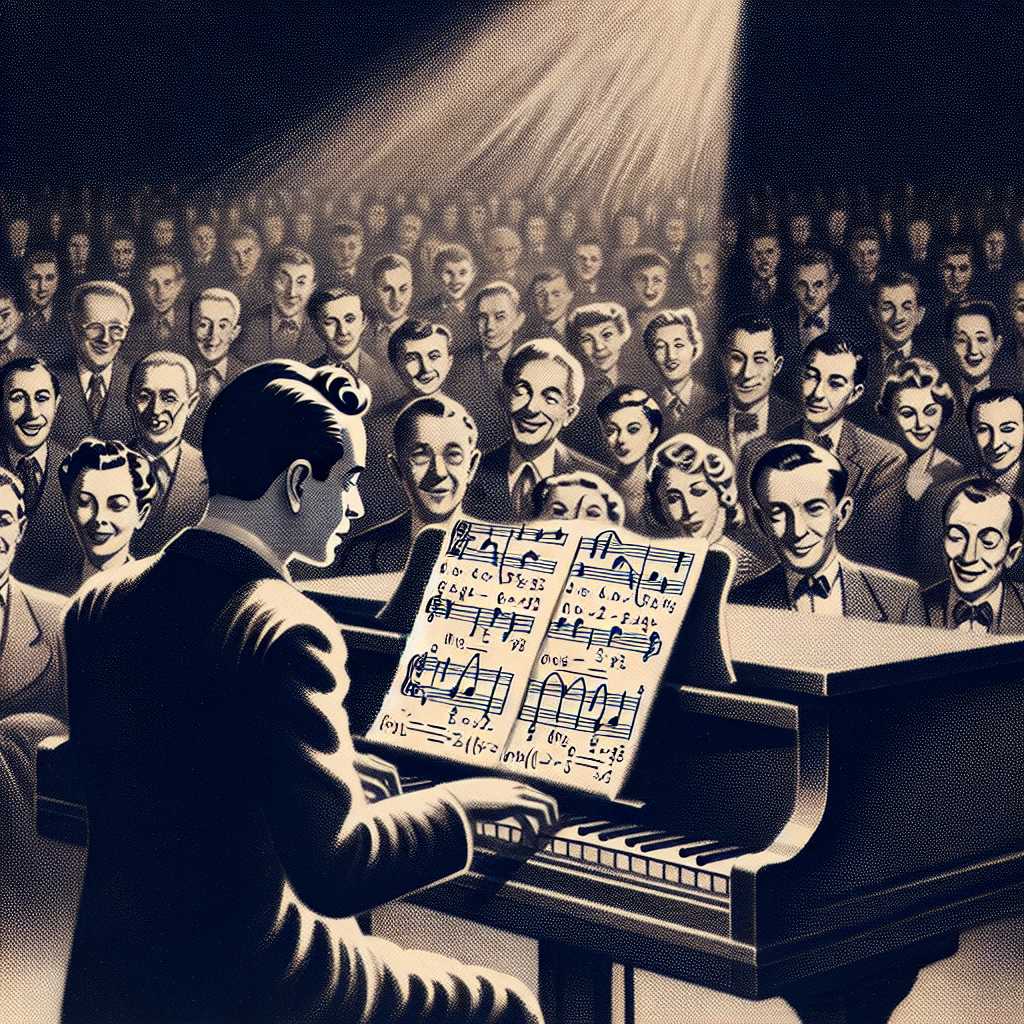Example Article
The Unlikely Journey from Mathematics to Musical Satire
Tom Lehrer’s career is a fascinating intersection of academia and entertainment, a blend rarely seen in popular culture. Born in 1928, Lehrer was a prodigious talent in mathematics, earning his PhD at Harvard by the age of 21. Yet, it was not purely his academic prowess that would bring him enduring fame; rather, it was his unique ability to infuse sharp wit and intellectual rigour into satirical songs. His background in mathematics and science provided a framework for his lyrical precision and clever wordplay, setting him apart from many contemporaries in the world of musical comedy.
Lehrer’s early work was closely tied to his academic life, with performances often taking place on university campuses. His songs tackled everything from politics to social issues with a biting humour that appealed to an educated audience who appreciated both the satire and the subtle intellectual references embedded within. This merging of highbrow content with accessible music helped carve out a niche that transcended typical comedic songwriting.
What makes Lehrer’s journey intriguing is how he maintained dual careers for decades—teaching mathematics at institutions such as MIT and Harvard while simultaneously captivating audiences worldwide with his recordings. His decision to eventually step away from performing professionally did not diminish the cultural impact of his work; instead, it highlighted how he viewed music as a complement to, rather than a replacement for, his scholarly pursuits.
Intellectual Satire: The Signature Style of Tom Lehrer’s Lyrics
Lehrer’s satirical style is marked by an extraordinary blend of erudition and irreverence. His lyrics often combined complex subjects—such as nuclear proliferation, political hypocrisy, and social taboos—with catchy melodies that made the messages both entertaining and thought-provoking. Songs like "The Elements," which cleverly set the periodic table to music, showcased his unique ability to educate while amusing.
This intellectual satire was not merely about humour but also about critique. Lehrer had an uncanny knack for exposing societal absurdities through irony and hyperbole, making listeners both laugh and reflect. For example, "Poisoning Pigeons in the Park" uses dark comedy to mock casual cruelty, while "We Will All Go Together When We Go" comments on Cold War anxieties with chilling levity.
Moreover, Lehrer’s work anticipated many themes that would become central to later satirists and comedians—such as scepticism towards authority and the use of dark humour to confront uncomfortable truths. His songs remain relevant because they blend timeless wit with commentary on human nature and political folly.
Legacy and Influence Beyond the Stage
Despite retiring from public performance in the 1970s, Tom Lehrer’s influence persists strongly in both musical satire and popular culture. His recordings have been continually rediscovered by new generations via digital platforms, allowing his incisive humour to resonate long after their initial release. Many contemporary satirists cite Lehrer as a foundational figure who legitimised intelligent comedy.
His approach has inspired artists across diverse fields—ranging from musical comedians like "Weird Al" Yankovic to satirical writers who appreciate Lehrer’s seamless combination of intellect and entertainment. Moreover, educators have embraced his songs as engaging teaching tools that make complex topics more approachable.
Lehrer’s legacy also challenges the notion that academia and entertainment are mutually exclusive realms. By excelling in both domains, he expanded the possibilities for how scholarly knowledge can intersect with creative expression—encouraging future generations to pursue similarly hybrid paths.
Conclusion: Tom Lehrer as a Cultural Bridge Between Intellect and Wit
Tom Lehrer embodies an extraordinary cultural bridge between rigorous intellect and sharp-witted satire. His career defies simple categorisation; he is equally a mathematician, educator, composer, and social commentator. Through his enduring songs, he demonstrated that humour need not be superficial but could instead serve as a potent vehicle for critical thought.
By marrying academic precision with accessible music and biting social critique, Lehrer created a unique artistic legacy that continues to inspire both scholars and entertainers alike. His work invites audiences not just to laugh but also to think deeply about society’s follies.
Ultimately, Tom Lehrer reminds us of the power of satire informed by knowledge—a reminder increasingly pertinent in today’s complex world where critical thinking remains essential.
Notes
- Tom Lehrer earned a PhD in mathematics from Harvard at age 21.
- "The Elements" song memorably sets the periodic table to Gilbert and Sullivan’s tune ‘I Am the Very Model of a Modern Major-General.’
- Lehrer retired from professional performance in the late 1970s but continued teaching mathematics.
- His satirical songs have been used as educational tools in classrooms worldwide.
- Lehrer influenced numerous modern satirists including musical comedians and political commentators.

